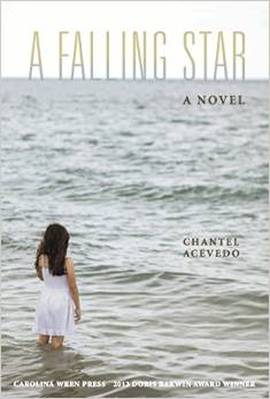 Thank you Chantel Acevedo for inviting me to take up the Chocolate Challenge: three books, three reviews, three types of chocolate. And with my sweet tooth…chocolate is the best way to describe some of the delicious books listed below! You can read Chantel’s take on the challenge on her web page ihola and you can also follow her on Twitter @chantelacevedo. Check out her new novel, A Falling Star, published in August 2014 and her novel, Love and Ghost Letters. DARK CHOCOLATE
Dark chocolate is often described as chocolate that has a somewhat bitter taste to it. Don’t get me wrong, it’s good, but it stays with you long after you consume it. That is why the first book I am going to mention is by the late, great Bebe Moore Campbell, 72 Hour Hold. This book has stayed with me since I first read it in 2005. At the time, I was struggling with debilitating depression, and I stumbled upon this book while trying to find something to distract me from my own struggles and maybe even inform me about some of the concerns I had about my own illness. This book accomplished both. 72 Hour Hold is the story of a mother, Keri, who is trying to come to terms with her daughter, Trina’s, struggles with bipolar disorder. Trina went from being a normal vivacious young person, to becoming a violent, disruptive shadow of her former self. This novel shows the true nature of this disease and how it not only affects the person suffering from it, but also the ones who love the sufferer. The reader gets to see Keri fighting her child, as she fights her ex-husband and a flawed system in order to insure Trina gets the help she needs. The reader witnesses Keri’s overwhelming love for her daughter and her willingness to do anything to get her daughter back. This book is not for the faint of heart. Bebe Moore Campbell doesn’t sugarcoat bipolar disorder and she doesn’t offer any easy solutions, hence the bitter chocolate taste that is left in the reader’s mouth after completing this well-written piece of fiction. It is a tragedy that Ms. Bebe Moore Campbell is no longer with us. Her voice is greatly needed.
0 Comments
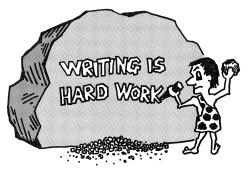 I'm working on my second novel, and right now, I am writing a scene involving the Ku Klux Klan and a soon to be burned down chicken coop full of chickens. Right now, I feel tortured by the writing. I both want to run to it, and run away from it. Writing is HARD. Don’t let anyone tell you different. Sometimes, I wonder why I put myself through this process. Don’t get me wrong, I love being a writer, but it can wreak havoc on one’s mental state. There are times when the writing seems to be pushing me to the edge. It is no wonder to me that many writers turn to the bottle and other coping mechanisms. When I wrote some of the tougher scenes in my debut novel, Drinking From A Bitter Cup, I had to mentally prepare myself for some of the more graphic moments involving my young heroine, Sylvia Renee Butler. I loved that little imaginary girl and as her creator, I wanted to step in, and “fix” her life. I wanted her mother to stay and not abandon her, but writers have to honor the story. Once the story starts to reveal itself to us, we have no choice but to write the story the way it was meant to be written. If we don’t, the story will come across as contrived and boring. Readers can tell when you don’t write the story the way it was meant to be written. The characters come across as weak and cookie cutter. The prose sounds flat. The scenes feel forced and uninteresting. Real writers go into the deep because there is where the story exists. The trick is to not stay there. The trick is to be able to separate these characters and their world from the world that is made up of our family, friends, job, etc. When writers go in to the depths of a story...and I mean, really go in...they are often left feeling like a puddle of water on the floor, when it is all said and done. Below is one of the pieces of dialogue from my next novel that has left me tossing and turning at night, but I knew when I typed those words, they were the words the character HAD to say. “Hey in there. Y’all niggers come on out,” a loud male voice yelled. “We about to make y’all some fried chicken. We know how much you darkies love yourself some fried chicken.” Typing those words broke my heart. In my mind I questioned myself. I asked myself, How can you put your characters through such pain and degradation? My response was simple: Because I have to. Writing in the deep is not easy. New York Times and Times of London bestselling author, Raymond E. Feist, says: “Writing is hard work; it’s also the best job I’ve ever had.” I have to say, I concur. 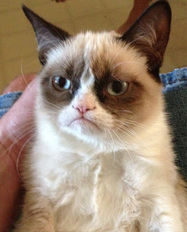 "No, I'm fine. Why do you ask?" "No, I'm fine. Why do you ask?" Today, I am not having a fun time being writer. In fact, most of this week hasn’t been fun. Why, you ask? Well, instead of working on my next novel or having imaginary conversations with Gayle and Oprah about my book, I have had to put aside my creative hat and focus on my marketing hat. I have made 15 phone calls to bookstores about possible book signings. I have sent out over 50 emails to book stores, book clubs, book reviewers, and members of the press about the release of the book and upcoming events. I have visited half a dozen bookstores and I have given out tons of flyers and postcards. I have made posts to Facebook and Twitter urging my family and friends to write reviews and post them to Amazon, Barnes and Noble, Books A Million and Goodreads. And I’m not even counting all of the hard work my husband Robert and other friends have done to try and get the word out. Whew. No one said this writing thing went beyond sitting at a comfy desk with a nice mug of tea while the writing muse has its way with me. Okay, okay. Before you say, “Blah, blah, blah, stop complaining. Wasn’t this your dream?” Let me just say, yes, you are right. But it doesn’t change the fact that this part of the process is not fun. I am an extroverted introvert, meaning, I can turn on the charm when I have to, but in all honesty, a great day to me is a day when it is just me, my muse, and my keyboard. Making phone call after phone call where I have to spark enthusiasm in the hearer on the other side of the phone is not my idea of a good day, hence why I never went into sales. I was teasing a friend the other day when I said I have heard everything this week but “It’s not you. It’s me,” when I called various bookstores trying to set up book signings. Nobody told me that most bookstores are not interested in granting signings unless you are already well-known. Whodathunk? It’s like being back in the day when I was a new job hunter and I couldn’t get a job because I didn’t have a job. But you know, in spite of that fact, those of us who write and publish can’t give up. Even if 9 out of 10 people turn us down and make us feel like our life’s work is not much more than a blip on the radar screen of publishing, we can’t give up. Why? Because of that one success, and yes, that one success matters. So, here are some tips to writers who are interested in publishing: 1. Make sure you spend some time building your presence on social media. Promoting your work becomes a little easier when your friends, family and colleagues are also helping to get out the word. 2. Get ready to be a cheerleader for your work. If you are too timid to shout about your work from the rooftops, you have probably selected the wrong career path. Yes, there are authors who write in isolation and never interact with the public and somehow find a way to get their work to its intended audience, but really, those writers are few and far between. Make sure you enter into the publishing process believing you will have to do most of the heavy lifting when it comes to marketing your work. Even those who publish with the large presses are finding themselves having to utilize their skills as marketers to plug their work. 3. Get organized. I have half a dozen templates of letters, emails, press releases, etc., so when I find a new outlet to send material to, all I have to do is tweak my template and then Voila!, it is off to my new potential resource without me having to spend hours recreating the wheel. 4. Schedule your day so that you are not trying to market your work and write creatively in the same time and space. There is nothing that will suck away your creativity more than knowing you have to send off press releases, type up mailing envelopes, or talk on the phone with individuals who might be lukewarm, at best, when it comes to talking to you about your work. 5. Delegate or ask for help. Once you are in publishing mode, you need a team – a team of unpaid (or paid if you roll like that) “staff” who can take some of the burden off your shoulders so you really can spend more time being creative. As I’ve said repeatedly, my husband has been my rock throughout this entire process so far. My great friend, Lauren, who has hosted an event, helped with the copy editing, and sent out reviews and press releases, has been invaluable in this whole process, and daily, I am asking her to do more and more. So, whenever people say, “Is there anything I can do to help you publicize your work,” take them up on their offer! Get them to make phone calls. Get them to send out books for review or press packets (to those who still want hard copy packets). Get them to show up at your readings and help with all of the behind-the-scene duties that will overwhelm you on the day of your signing. So, I offer you writers this advice, not to discourage you but to prepare you for those days when the writing life just doesn't seem rewarding. When literally and figuratively you are getting doors slammed shut in your face and you say to yourself, "But I have an ISBN number. Ain't I a writer too!" Just remember, unless you are already Alice Walker or Toni Morrison or any of the other rock stars of publishing, don’t expect the red carpet to automatically be rolled out to meet you at every venue you imagine yourself reading in. Unless you are a literary giant already, don’t expect the New York Times to come knocking down your door to do a book review for your book. Instead, go into this publishing thing like it is truly a business venture that in the beginning, there may not be very many individuals believing in your work besides you and your good old Aunt Susie. And that is okay. Just make sure you help Aunt Susie learn how to send a tweet, because, really, initially, she might be all you’ve got. Now, back to marketing my book. Oh, and by the way, do any of you have Oprah on speed dial? Okay, okay! Just asking. Sheesh! :) 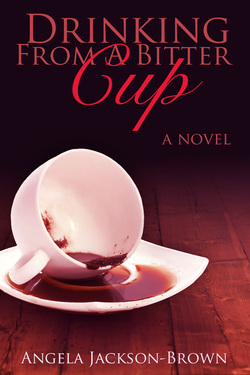 Don't forget to join me today as I discuss DRINKING FROM A BITTER CUP with DuEwa Frazier on her radio show, Rhymes, Views & News Talk Radio ! The show begins at 1:00 pm EST. Click here on the link to take you there! See you on the radio! If you would like to buy a copy of DRINKING FROM A BITTER CUP, go to Amazon, Barnes and Noble, or Books A Million. 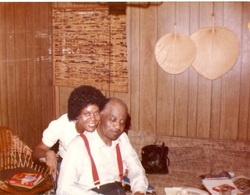 Mom and Granddad (I never got to meet him) Mom and Granddad (I never got to meet him) By the time I turned 16 and started looking for my birth mother, I was angry. I was suffering from “mommy abandonment issues” and I wanted to find her so I could punish her. I’m not proud of that fact, but it is the truth. I’m thankful I did not find her then. Emotionally, I was not ready for a relationship to begin between the two of us and I’m afraid, had I found her, things would have quickly fallen apart between us. So I say with gratitude, my journey to find my mother was a slow process with a ton of road blocks in the way. I started my search before there were computers like we know them, so my process involved writing letters and making phone calls. On my adoption papers it said her name was Gwendolyn English and I was born in Montgomery, AL. That’s all I had to go on. For some reason, since I loved English so much as a subject, I just knew she and I were destined to meet one day. In my heart, I knew it was just a matter of time until I found her. But all of my searching seemed to lead towards more and more dead ends, and there were so many monumental events that took place that I wanted her to be there to witness. My high school graduation. My marriage. My graduation from college. My son’s birth. My divorce. My stroke. Yet, it was almost another twenty years after I began my search at age 16 before I found the woman on my birth certificate – Gwendolyn English. I remember walking to her door, anxious, even though she said she couldn’t wait for me to arrive. When she hugged me for the first time in my adult life, I felt like I had come home. My adopted family, especially my daddy, meant everything to me; I was thankful that I grew up a member of the Jackson family. But she was always the missing component. And then I found out that I had siblings, and having grown up an only child, I felt blessed beyond measure. Not to mention all of the fabulous aunts, uncles and cousins I inherited. My life was moving toward completeness. A few months ago, a television show called “I’m Having Their Baby” aired, and it became a source of conversation for the two of us. The show was all about women who made the decision to give up their babies for adoption. One day my birth mom said, while we were discussing the show, “I wish I could talk to those young women and tell them how difficult it is to give up a baby.” Shortly after she said those words, I approached her about doing this interview with me. I think she was a little hesitant at first, but eventually, she and I made the decision to share part of our story. So, here it is. My interview with the woman who birthed me into this world and set me free for just a little while – Gwendolyn English Pendleton. Hi, Mom. Tell me about that first year after the adoption. I didn't handle the first year very well. In fact, I was nearly a basket case. I was determined to keep the adoption a secret, leaving me with no one to talk to, and at the time, I didn’t have God in my life, so I truly felt lost and alone. When I was little, I used to pretend you were a Queen in a far-away kingdom, and one day, you would come and find me. What are some of the dreams you had about me and my whereabouts? In my dreams of you, you were always an adult. I never saw you as a child. And when I did dream of you, I didn’t find you in the dream, you always found me. You were at the front door of the house. I never saw myself taking you from your adopted family. It would have been the wrong thing to do. My dream was seeing my daughter as a young lady, knocking at my front door. And, it almost happened just that way. You mentioned that after you put me up for adoption, you went back looking for me. What was it like for you when you found out I had been adopted? It was sad and then again, it was almost a relief that you had been adopted early and you weren’t stuck in a dreary orphanage, like the ones in the movies about abandoned children. You were such a beautiful baby. I did have some mixed feelings when I found out you had been adopted though. I was happy for you, but I was also disappointed because my deep desire was that I might reclaim you. However, I realized that getting you back would have been a difficult task since I had already signed away my rights. Another part of me decided that my baby was in a good home and I should allow her to grow up there. This decision finally gave me a level of peace. In what ways did the adoption affect your relationship with my sister and brothers? It made a difference when they were older and their father and I divorced. Having given you up, I knew I would not allow another child to get away from me. It made me want to hold on to them more. The adoption, I believe, caused me to be a stronger mom, and a more determined mom who would fight to keep my other children and not let anyone take them out of my arms. Describe what your first thoughts were on that day I called you for the first time. That day you called, I knew who you were before you even said your name, a name that I chose for you – Angela Denise. I knew your voice. It was our voice. And when you said your name I thought, God did just what he said he would. He brought my baby home!! It was a miraculous moment. It was glorious. It was awesome. Because my adoption was a secret to most members of our family, how did you deal with my sudden re-appearance into your lives? I called the family together and told them the truth. They were so wonderful and so understanding. I'll never forget it. I thank God for all my babies and my other family members. You and I have spent the last 13 years trying to get to know each other. What has been some of the challenges? And what has been some of the great moments? We need to be seeing each other more – that’s the challenge. The great moments were the very first time I saw you as a young lady and every time I've seen you since. The challenge has only been the physical distance between us. If you could give advice to mothers contemplating adoption, what advice would you give to them for surviving those years apart from their child? To be honest, I have no advice to give. Every woman must decide for herself what the right decision is for her. Fortunately, I came through by the grace of God. I know that God allows us to go through things for spiritual and mental maturity, even when we bring these things on ourselves. Would I make that decision to give up my baby again? I don't know. I'm not that person anymore. She was only 19 and very confused. I don’t believe I would do it now, knowing what I know. How do I know I wouldn’t give up my daughter – give up you? Because I'm stronger and wiser, and I know that I wouldn't have to go through it alone. Mom, thank you for doing this interview with me. We’ve been through a lot together, both when we were apart and now that we are in each others' lives again. Let me say what I have said before, I have no regrets. I was loved. I was nurtured. I made a difference in the life of my parents who really wanted me. You did the right thing. If you would like more information about adoption, visit the National Council for Adoption website by clicking here. If you would like to read more blog posts by me, visit my blog, “Writing in the Deep” by clicking here. Thank you for visiting my blog. Don't be a stranger. 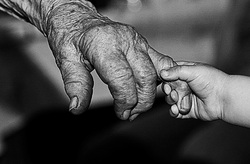 It has been nine years since my daddy died. Nine years! I can’t believe it sometimes. There are mornings when I will wake up and reach for the phone to call him and then realize – he’s gone. Oh, I know all of the things we tell ourselves. ”He’s not really gone. He still lives in you.” I hear the words, but the bottom line is, sometimes I just want a hug from him. Sometimes I want to hear his wisdom. Sometimes I don’t want to be the one who has to have the answers. I actually remember when Daddy was my age. I was a little girl. He seemed so much older and wiser than I feel at this same age. He wasn’t without fault, but when it came to my questions, he seemed to know everything. Daddy, why is the sky blue? Daddy, what does God’s voice sound like? Daddy, how far is it to the end of the universe? Of course, he didn’t have answers to questions like those, but he had a way of explaining things to my young childish mind that I was satisfied to not wonder anymore about things that were not easily explained – at least for a time. I fear that I do not have that same ability he had. Sometimes, my sons will turn to me for wisdom and insight and all I want to do is ask my daddy to tell me what to say to them. Sometimes I think about my future grandchildren and I wonder, what life lessons can I impart to them to help them become stronger – braver? I don’t know. And that scares me at times. I want to be their rock. I want to be their guiding hand. I pray that when that day comes, instinctively, I will know what to do and say. A few days ago I spoke to my Aunt Lenora on the phone, and she said she was the last living member of her side of the Jackson family. I heard within her voice the fear and the loneliness of being the last elder standing in a long line of amazing people. As the matriarch of our family, we expect Aunt Lenora to always be brave and fearless. We expect her to always be knowledgeable about every question we might have. Yet, we forget. Like the rest of us, she was a little girl once who looked up to the heroes and she-roes in our family. She ran around outside and played with her siblings and cousins. She sat in front of her mother, the woman we lovingly called Big Mama, and asked her all of the questions little girls ask their mamas. She ran behind her daddy, Daddy Red, and hung on to his every word. Now, she must be the elder of our family. I know at times it must be overwhelming to be the one everyone comes to for answers. My conversation with her allowed me to have a greater understanding of what it really means to be an elder. Elders are wise, but they are also vulnerable, just like the rest of us. We sometimes take for granted that when we reach some magical age we will be wise and ready to face anything life might send our way. But the older I get, the more I realize, we are all still just babes. Our hair might show white strands of wisdom, but when it is all said and done, no matter what our ages, we still crave someone to be just a little wiser than we are. We want those loving arms of someone older to wrap us up in an embrace that says, “Don’t worry. I’ve got you.” We want those things when we are seven and we want it when we are seventy-five. I miss those days when my daddy was able to solve all of my problems with a reassuring look and a full-on loving hug. I pray my children and grandchildren will feel that safety I always felt in my daddy’s embrace. I hope that, in me, they will find some of the same traits I found in the the elders who helped to raise me to be the woman I have become. 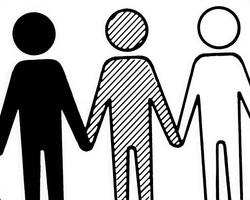 I am a child of the south. I have some very fond memories of growing up in the small town of Ariton, Alabama. I am a proud, southern writer and many of my family and friends reside there, so the south will always be home for me. But similar to Countee Cullen, in his poem, “Incident,” a great deal of my memories are clouded by the sting of racism. Perhaps the racism that hurt the most was from those “benevolent racist.” They were kind-acting. Wanted the best for everyone, even if it meant the continuation of segregation. In their minds, we all would be better off if we just kept things the way they were. But if you questioned them about their “attitudes,” they would insist that they “don't see color.” Many of their close friends, they would say, were “Colored, Negro, Black, African American, etc.” My short essay, “'Lost in 1993” is about my first day of college at Auburn University. As much as I knew I had overcome to get there, it took the actions of one student to spiral me downward into the rabbit hole of self-doubt. “Lost in 1993” is my story of falling, but it is also my story of getting back up. Lost in 1993 “Are you lost?” he asked, smiling, with an almost tender concern on his face as I stood hesitantly at the door of the classroom. I had followed the sound of lighthearted conversation and banter; sure that one of those self-assured unknowns would know where I was supposed to be in the next ten minutes. I entered the room. The room had tables and chairs arranged in an awkward circle and the view from this room on the 9th floor of the Haley Center was breathtaking. I could see Jordan Hare Stadium from the windows. I imagined my son and me there watching ballgames together. I sighed. This was my dream deferred and in spite of everything that had seemed to sidestep me from this dream through the years, I had finally made it! I smiled at the guy who stood there waiting for my response. I guess I was in such awe of actually being in the place I'd dreamed of for so long, that his questions flowed right through me without even registering in my psche. Plus, he had a Jesus-like look of patience on his face. Like if I never spoke, he would have still waited there looking welcoming and affirming. I was relieved for his concern. I had been circling the halls of the Haley Center for several minutes and I was afraid of being late for my first official graduate class. I had approached getting into Auburn University’s graduate school like I had approached everything else in my life—with grit, determination and the tenacity of a pit bull. I had secured grants, scholarships, housing and daycare for my son, so, the first day of class had been a long time coming, but in spite of, or maybe because of all that I had gone through to get there, I just knew I was about to live out my greatest dream. I reached out my hand to shake his. He seemed to hesitate for a moment. I even remember him looking at my hand in a strange manner, as if something was wrong with it, but before I could withdraw it, he grasped my hand firmly. "Hi," he said. "I'm *Court." Although concerned about being lost, my face could not contain its smile, particularly since the young man and his friends were behaving so friendly. I thought to myself, these are my fellow comrades and they are welcoming me. My smile threatened to split into halves, thirds, and into an unrecognizable mass of teeth and gums. "Hello," I said, shaking his hand firmly. Just like my daddy had taught me. Always look people in their eyes when you shake their hand, he had told me. The mark of an educated person is one who is not afraid to look a man straight in his eyes. I wanted to tell this smiling fellow that my first class was medieval literature and yes, I was lost. I wanted to tell him I liked Beowulf. I had read it in high school, and when I realized that we would be studying it in my graduate class, I pulled it out and reread it, making all of the intelligent sounding comments in the margins that I could think of. I wanted to be prepared. I wanted to tell him all of those things, share with him my excitement, but before I could say another word, he quantified his question; still, with the same benevolent smile he’d had from the beginning. “You know this section of the Haley Center is for graduate students? Right?” He sounded so innocent. But the alarm system that people of color possess that alerts us to the fact that we have just been hit with an invisible racist hand slap started chiming in my head. Like the loud, ominous sound of church bells. Instead of the words I know he spoke, I instead heard: You know this section of the Haley Center is for White’s only? Right? I think at that moment I dropped my eyes to the floor, and tried to regain the composure that had surely slithered off of me into a limp pile by my feet. To this day, Court does not know that his words took me back in time. If questioned about the incident, if he even remembered it, he would probably say he meant no harm. And you know, I would probably believe him. But it wouldn't change the sting I felt when he said it. In that moment, he violently tossed me into the rabbit hole that led back to the segregated south of my youth where I peed in Colored’s Only bathrooms and drank from my people’s very own personal drinking fountains that spewed out bitter streams of water. Slowly, I looked back up at Court again. He was still smiling. I studied him. He was dashingly handsome. Like a young Dean Martin or Clark Gable. But in that moment he became ugly. Like a steely-eyed Bull Conner ordering water hoses to knock down innocent, brown faces whose only crime was the desire to partake in civil disobedience. His few words stripped me of the advances Colored people had made and I was once again reminded me that I was The Other—the story that existed outside of the margin. Court was a benevolent racist. The kind who meant no harm. Later, he would "compliment" me by saying things like, "Well, one thing is for sure, Angela. You will always have a job" OR he'd say, still with a smile, "It's not easy getting a job if you are a white man." When he said things like that, I would find my anger rise up inside of me like the dry bones that came to life again in the biblical story. I had run out of compassion’s milk to offer to the ignorant lips of the Court’s of the world. I had run out of prayers of forgiveness for their lack of understanding of how their words were the matches that caused invisible crosses to burn. In that moment, I was no Jesus praying for his offenders. I was praying for that Old Testament God of vengeance to rear his head again and strike down those people like Court who continued to drape themselves in the covering of ignorance. But on that monumental day when Court asked me if I was lost, I realized something important. That day wasn’t just for me but it was for my grandparents, my dad and mother, Miss Eveline who used to give me Wrigley’s Spearmint gum during church services, my aunts and uncles and cousins, and all those elders from my home town, alive and dead, who never even got a chance to sit at the welcome table because they were too busy serving at it. Remembering that important fact allowed me to swallow hard and smile at Court and his merry band of men, and reply in a voice filled with confidence and pride,that even surprised my ears, “No, Court, I’m not lost. I’m where I belong. Would you mind helping me find my way?” *Name changed. 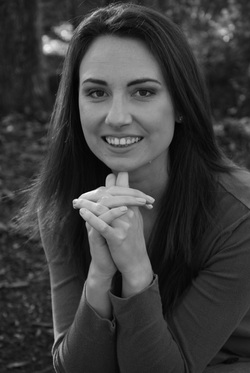 WiDo Publishing author, Jadie Jones, has recently released her first novel entitled Moonlit. Jadie lives with her family in the foothills of North Georgia. She has a degree in equine business management from St. Andrews University, and she is currently training horses, coaching several competitive riding teams, and working hard on the next installment of her series, featuring her spunky and charming main character, Tanzy Hightower. 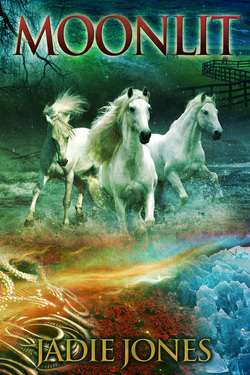 Story Synopsis Eighteen-year-old Tanzy Hightower knows horses, has grown up with them on Wildwood Farm. She also knows not to venture beyond the trees that line the pasture. Things happen out there that cannot be explained. Or undone. Worse, no one but she and the horses can see what lurks in the shadows of the woods. When a moonlit ride turns into a terrifying chase, Tanzy is left to question everything, from the freak accident that killed her father to the very blood in her veins. Broken and confused, she turns to Lucas, a scarred, beautiful stranger, and to Vanessa, a charming new friend who has everything Tanzy doesn’t. The question then becomes, why do they seem to know more about her than she knows herself? INTERVIEW Hello, Jadie. Thank you for doing this interview with me. One thing I always wonder about fellow authors is do they have specific writing “ritual” to get them into the mindset to write. Do you have any such rituals? Thanks, Angela. I really like to have a cup of hot tea within an arm’s reach, especially during drafting. I also work best in stretchy pants. Seriously. I lean forward a lot when I write and wearing real pants just won’t do. I also like to have an empty picture frame somewhere near my computer. I got the idea from a piece of writing advice Anne Lamott gives in her book Bird by Bird. This ritual helps me focus if I get stuck. Jadie, it is clear that you are a talented young writer. You write with a confidence not often seen in newly published writers. I’m just curious; who are some of your favorite writers? Amy Greene, Walter Farley, and Anne Lamott, to name a few off the top of my head. When a writer’s voice comes from an honest, simple place, I fall in love and will follow them anywhere. Of course the question everyone wants to know the answer to is where did you get the idea for your novel, Moonlit? I took a head-dive off of a horse and wound up with a pretty good concussion. When I went to sleep that night, I dreamt of an underground chamber in ancient Egypt where a band of dark headed girls was guarded by burly, half-dressed men. I had the distinct impression that the girls made the guards very nervous, and then one of the girls turned and looked straight through me, as if to say: tell our story. I started penning the first draft that afternoon. What part of the novel came to you first – the characters or the plot? The character has been a voice in my mind for a long time. It just took me a while to find a journey she’d agree to take. And then I had to figure out how to get my down-home farm girl to ancient Egypt… The question authors are always asked is how much do certain characters resemble them, so I will ask the question of you…how much of Tanzy, your novel’s protagonist, is you (if any part)? The horse-girl aspect is something I draw from personal experience. I started working at a horse farm when I was twelve, cleaning tack and scrubbing buckets, etc. Once I turned sixteen and could drive myself, it was not uncommon for me to be out there alone either blanketing horses on cold nights, or checking on a sick horse. I also liked to arrive before anyone else because I enjoyed the quiet and could get more done. Predawn at a barn is the most peaceful place on earth. I’m also admittedly headstrong and can react before I think something through. Those traits show up in Tanzy as well. Now that I have finished reading Moonlit, I am ready for book two of your trilogy. How far into the writing process are you with the other two books? I am currently editing the sequel in hope to submit it to WiDo Publishing in May. I’m still unearthing some key factors in the sequel. They make themselves known to me only once they’re sure I’ll know what to do with them. I know what I want to accomplish with the third and final book, but I’ve learned to stay very open minded and flexible when it comes to Tanzy Hightower. She’s a force of nature. Well, Jadie, I wish you much success on this day—YOUR BOOK RELEASE DAY. I am sure that Moonlit will have a tremendous amount of success. I look forward to reading all of your work to come. If you would like to learn more about Jadie Jones, please meander over to her website. Click here. 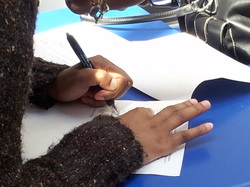 The picture to the left is of me signing my book contract with WiDo Publishing. Oh. What. A. Feeling. To read more about my dream come true, click here. |
Archives
March 2021
Categories
All
Blog Roll
|

 RSS Feed
RSS Feed







